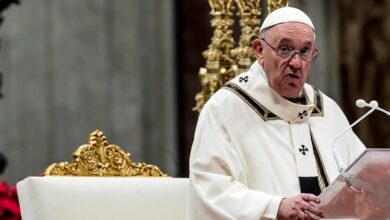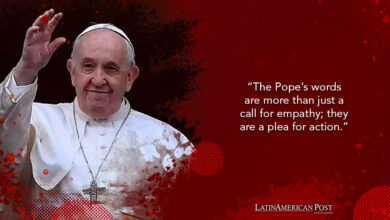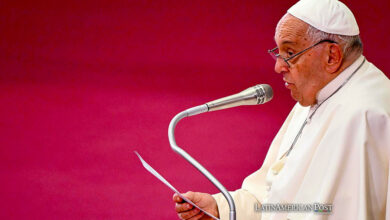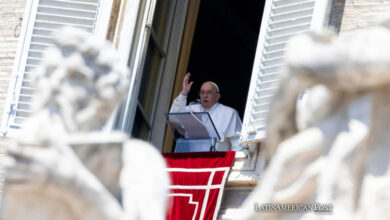Pope Francis Affirms Blessing Same-Sex Couples Amid Church Debate
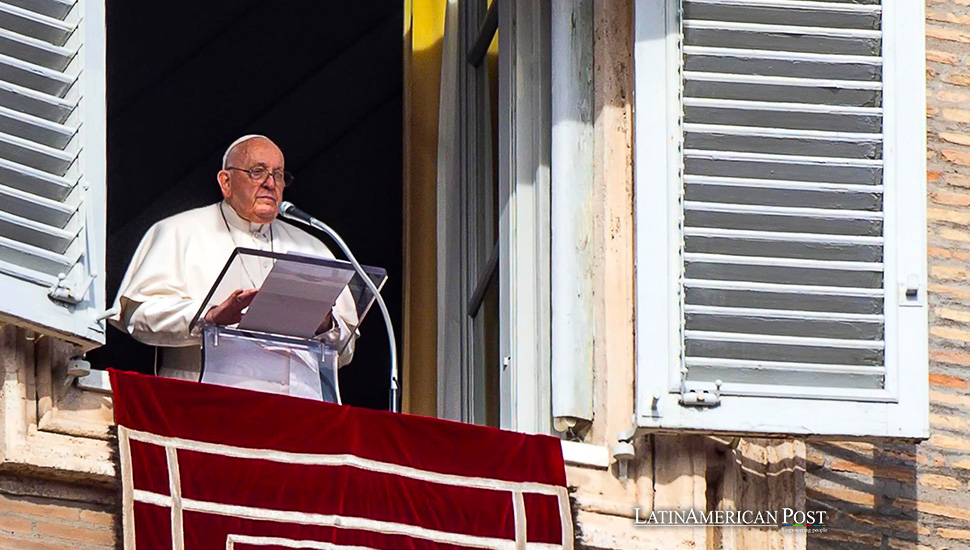
In a bold stance that challenges the conservative sectors of the Catholic Church, Pope Francis recently affirmed his decision to allow blessings for same-sex couples and those in “irregular” relationships. His declaration, made during an interview on the Italian program Che tempo che fa, represents a significant moment in the Church’s ongoing dialogue regarding inclusivity and acceptance.
The Church’s Progressive Move
Responding to questions about a potential resignation akin to his predecessor, Benedict XVI, Pope Francis stated that resignation is not a current concern or desire. He emphasized his commitment to serving as long as he felt capable, indicating that thoughts of stepping down would only arise when he could no longer fulfill his duties.
The interview delved into the controversial declaration made by the Congregation for the Doctrine of the Faith on December 18, approving the blessing of homosexual and “irregular” couples. While not equating these unions with marriage, this decision marks a notable shift in the Church’s approach towards non-traditional relationships.
The move has sparked unease among the Church’s conservative wing, particularly within the African clergy, where many countries still criminalize homosexuality. Cardinal Víctor Manuel Fernández, Prefect of the Congregation, clarified that the blessings are intended to be spontaneous and non-liturgical, varying according to cultural contexts.
Pope Francis Advocates for Open Dialogue
Pope Francis acknowledged the loneliness that can accompany decision-making, noting that resistance often stems from a lack of understanding. He advocated for open discussion and expression of doubts, underscoring the importance of fraternal dialogue in resolving disagreements.
The Pope’s stance on blessing all who seek it represents a broader message of inclusion and compassion within the Church. He emphasized that the Church’s role is to extend a hand to everyone rather than condemn from the outset.
Concerns about Global Conflicts
Beyond this, Pope Francis also expressed his deep concern about global conflicts, particularly the wars between Ukraine and Russia and between Israel and Hamas in the Gaza Strip. He lamented the weapon industry’s role in these conflicts, pointing out the devastating impact of wars, especially on children. The Pope’s poignant remark, “That a child forgets to smile is criminal,” highlights the human cost of these conflicts.
Pope Francis’s remarks in the interview reflect a nuanced approach to leading a diverse and often divided Church. His willingness to engage with and bless those in same-sex or “irregular” relationships shows a significant departure from traditional Church teachings. At the same time, his commitment to dialogue and understanding within the Church signifies an effort to bridge the divide between progressive and conservative viewpoints.
Evolution of the Catholic Church
The Pope’s decision and subsequent defense of it illustrate the ongoing evolution of the Catholic Church under his leadership. It marks an attempt to reconcile the Church’s teachings with the realities of modern society, acknowledging the diversity and complexity of human relationships.
This interview sheds light on Pope Francis’s stance on critical issues. It reaffirms his role as a progressive voice within the Catholic Church. His emphasis on inclusivity, understanding, and the need for dialogue within the Church community offers a path forward amidst the challenges of adapting ancient doctrines to contemporary societal norms.
Also read: Dreams, Dances, and Bodies: Feminist Art as a Bridge Between Argentina and Spain
As the Church grapples with divergent views and evolving societal norms, Pope Francis’s leadership and approach to these sensitive issues will remain a focal point in the ongoing discourse on the Church’s role in the modern world.
His commitment to serving and guiding the Church amidst the complexities of contemporary issues and internal divisions underscores his dedication to a path of inclusivity and understanding, resonating with many believers worldwide who seek a Church that embraces rather than excludes.

